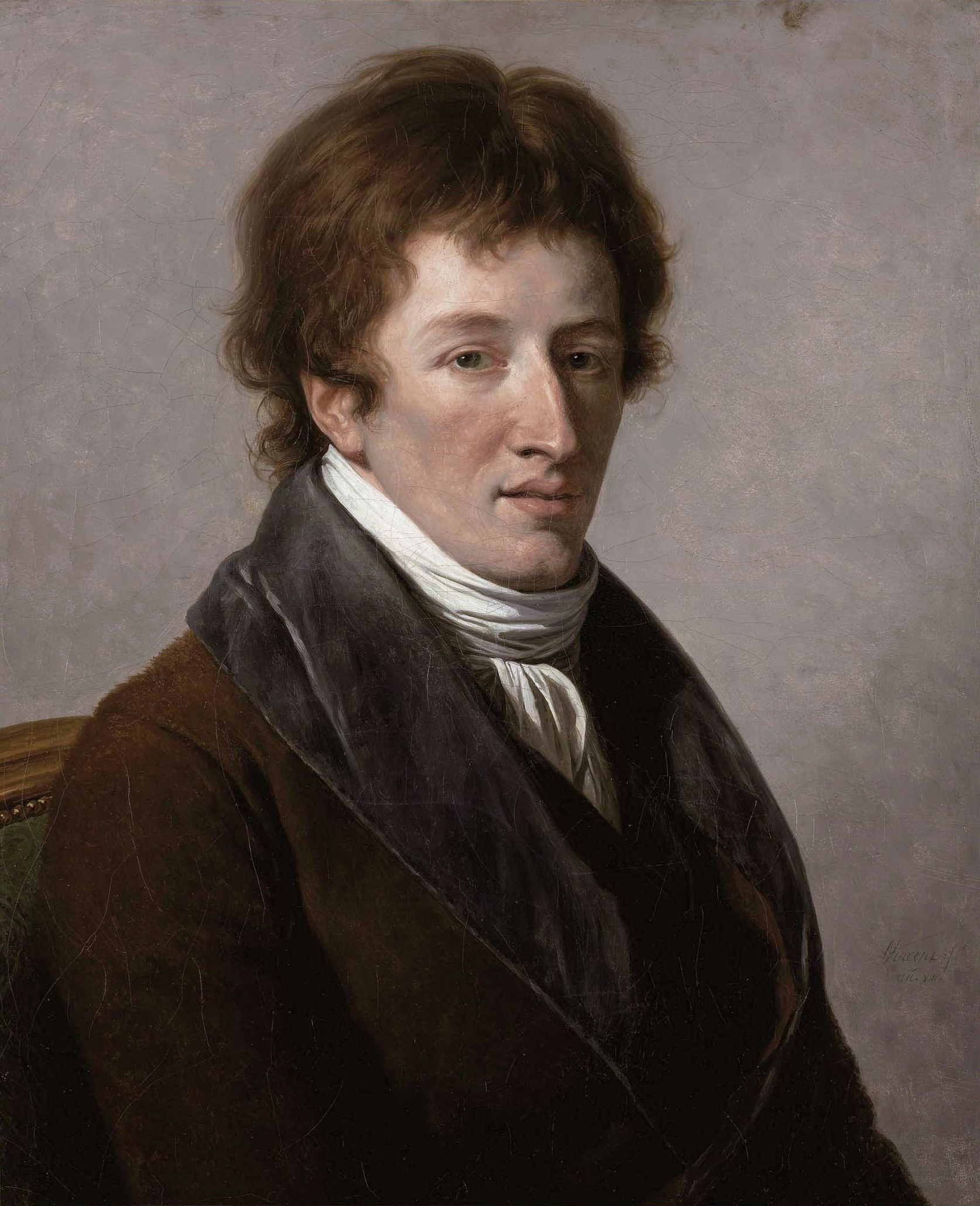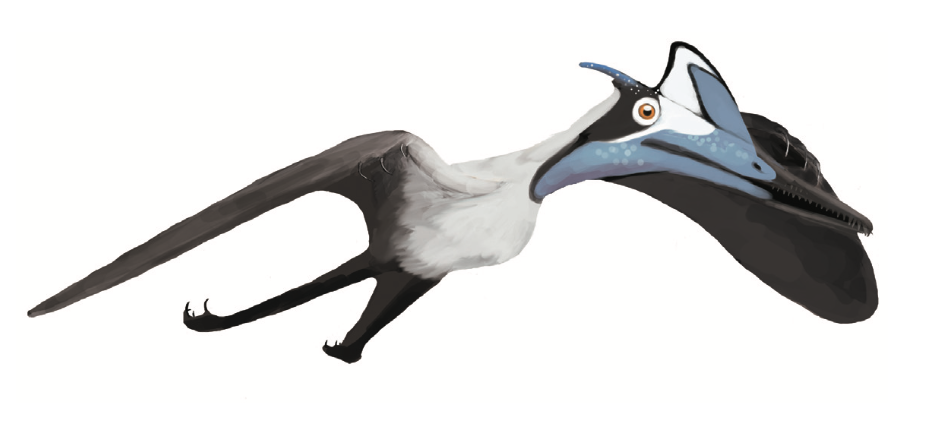|
Edward Newman (entomologist)
Edward Newman (13 May 1801 – 12 June 1876) was an England, English entomologist, botanist and writer. Newman was born in Hampstead into a Quaker family. Both his parents were keen naturalists, and he was further encouraged to take an interest in the natural world at his boarding school in Painswick. He left school at sixteen to join his father's business in Guildford, moving to Deptford in 1826 to take over a rope-making business. Here he met many of the leading entomologists of the day, including Edward Doubleday, and was a founder member of the Entomological Club. In 1832 he was elected as editor of the club's journal, ''The Entomological Magazine'', and the following year became a fellow of the Linnean Society and one of the founder members of the Entomological Society of London. In 1840 Newman was married and published the first edition of ''A History of British Ferns and Allied Plants''. He became a partner in a firm of London printers, Luxford & Co., and became a pr ... [...More Info...] [...Related Items...] OR: [Wikipedia] [Google] [Baidu] |
England
England is a Countries of the United Kingdom, country that is part of the United Kingdom. It is located on the island of Great Britain, of which it covers about 62%, and List of islands of England, more than 100 smaller adjacent islands. It shares Anglo-Scottish border, a land border with Scotland to the north and England–Wales border, another land border with Wales to the west, and is otherwise surrounded by the North Sea to the east, the English Channel to the south, the Celtic Sea to the south-west, and the Irish Sea to the west. Continental Europe lies to the south-east, and Ireland to the west. At the 2021 United Kingdom census, 2021 census, the population was 56,490,048. London is both List of urban areas in the United Kingdom, the largest city and the Capital city, capital. The area now called England was first inhabited by modern humans during the Upper Paleolithic. It takes its name from the Angles (tribe), Angles, a Germanic peoples, Germanic tribe who settled du ... [...More Info...] [...Related Items...] OR: [Wikipedia] [Google] [Baidu] |
Chamber's Journal
''Chambers's Edinburgh Journal'' was a weekly 16-page magazine started by William Chambers in 1832. The first edition was dated 4 February 1832, and priced at one penny. Topics included history, religion, language, and science. William was soon joined as joint editor by his brother Robert, who wrote many of the articles for the early issues, and within a few years the journal had a circulation of 84,000. From 1847 to 1849, it was edited by William Henry Wills William Wills may refer to: * William Wills, 1st Baron Winterstoke (1830–1911), British businessman and peer * William Gorman Wills (1828–1891), Irish dramatist and painter * William Henry Wills (journalist) (1810–1880), journalist, newspaper .... In 1854 the title was changed to ''Chambers's Journal of Popular Literature, Science, and Art'', and changed again to ''Chambers's Journal'' at the end of 1897. The journal was produced in Edinburgh until the late 1850s, by which time the author James Payn had taken over ... [...More Info...] [...Related Items...] OR: [Wikipedia] [Google] [Baidu] |
Fellows Of The Linnean Society Of London
Fellows may refer to Fellow, in plural form. Fellows or Fellowes may also refer to: Places *Fellows, California, USA *Fellows, Wisconsin, ghost town, USA Other uses * Fellowes, Inc., manufacturer of workspace products *Fellows, a partner in the firm of English canal carriers, Fellows Morton & Clayton *Fellows (surname) *Mount Fellows, a mountain in Alaska See also *North Fellows Historic District The North Fellows Historic District is a historic district located in Ottumwa, Iowa, United States. The city experienced a housing boom after World War II. This north side neighborhood of single-family brick homes built between 1945 and 1959 ..., listed on the National Register of Historic Places in Wapello County, Iowa * Justice Fellows (other) {{disambiguation ... [...More Info...] [...Related Items...] OR: [Wikipedia] [Google] [Baidu] |
English Lepidopterists
English usually refers to: * English language * English people English may also refer to: Culture, language and peoples * ''English'', an adjective for something of, from, or related to England * ''English'', an Amish term for non-Amish, regardless of ethnicity * English studies, the study of English language and literature Media * ''English'' (2013 film), a Malayalam-language film * ''English'' (novel), a Chinese book by Wang Gang ** ''English'' (2018 film), a Chinese adaptation * ''The English'' (TV series), a 2022 Western-genre miniseries * ''English'' (play), a 2022 play by Sanaz Toossi People and fictional characters * English (surname), a list of people and fictional characters * English Fisher (1928–2011), American boxing coach * English Gardner (born 1992), American track and field sprinter * English McConnell (1882–1928), Irish footballer * Aiden English, a ring name of Matthew Rehwoldt (born 1987), American former professional wrestler ... [...More Info...] [...Related Items...] OR: [Wikipedia] [Google] [Baidu] |
People From Hampstead
The term "the people" refers to the public or common mass of people of a polity. As such it is a concept of human rights law, international law as well as constitutional law, particularly used for claims of popular sovereignty. In contrast, a people is any plurality of persons considered as a whole. Used in politics and law, the term "a people" refers to the collective or community of an ethnic group or nation. Concepts Legal Chapter One, Article One of the Charter of the United Nations states that "peoples" have the right to self-determination. Though the mere status as peoples and the right to self-determination, as for example in the case of Indigenous peoples (''peoples'', as in all groups of indigenous people, not merely all indigenous persons as in ''indigenous people''), does not automatically provide for independent sovereignty and therefore secession. Indeed, judge Ivor Jennings identified the inherent problems in the right of "peoples" to self-determination, as i ... [...More Info...] [...Related Items...] OR: [Wikipedia] [Google] [Baidu] |
1876 Deaths
Events January * January 1 ** The Reichsbank opens in Berlin. ** The Bass Brewery Red Triangle becomes the world's first registered trademark symbol. *January 27 – The Northampton Bank robbery occurs in Massachusetts. February * February 2 ** The National League (baseball), National League of Professional Base Ball Clubs is formed at a meeting in Chicago; it replaces the National Association of Professional Base Ball Players. Morgan Bulkeley of the Hartford Dark Blues is selected as the league's first president. ** Third Carlist War (Spain): Battle of Montejurra – The new commander General Fernando Primo de Rivera marches on the remaining Carlist stronghold at Estella-Lizarra, Estella, where he meets a force of about 1,600 men under General Carlos Calderón, at nearby Montejurra. After a courageous and costly defence, Calderón is forced to withdraw. * February 14 – Alexander Graham Bell applies for a U.S. patent for the telephone, as does Elisha Gray. * Februa ... [...More Info...] [...Related Items...] OR: [Wikipedia] [Google] [Baidu] |
1801 Births
Events January–March *January 1 ** The legislative union of Great Britain and Ireland is completed under the Act of Union 1800, bringing about the United Kingdom of Great Britain and Ireland, and the abolition of the Parliament of Ireland. ** Giuseppe Piazzi discovers the asteroid and dwarf planet Ceres (dwarf planet), Ceres. *January 3 – Toussaint Louverture triumphantly enters Santo Domingo, the capital of the former Spanish Captaincy General of Santo Domingo, colony of Santo Domingo, which has become a colony of First French Empire, Napoleonic France. *January 31 – John Marshall is appointed Chief Justice of the United States. *February 4 – William Pitt the Younger resigns as Prime Minister of the United Kingdom. *February 9 – The Treaty of Lunéville ends the War of the Second Coalition between France and Austria. Under the terms of the treaty, all German territories left of the Rhine are officially annexed by France while Austria also has to recognize the ... [...More Info...] [...Related Items...] OR: [Wikipedia] [Google] [Baidu] |
William Buckland
William Buckland Doctor of Divinity, DD, Royal Society, FRS (12 March 1784 – 14 August 1856) was an English theologian, geologist and paleontology, palaeontologist. His work in the early 1820s proved that Kirkdale Cave in North Yorkshire had been a prehistoric hyena den, for which he was awarded the Copley Medal. It was praised as an example of how scientific analysis could reconstruct events in the distant past. He pioneered the use of fossilised Feces, faeces in reconstructing ecosystems, coining the term coprolites. Buckland also wrote the first full account of a fossil dinosaur, which he named ''Megalosaurus'' in 1824. Buckland followed the Gap creationism, Gap Theory in interpreting the biblical account of ''Genesis'' as two widely separated episodes of creation. It had emerged as a way to reconcile the scriptural account with discoveries in geology suggesting the earth was very old. Early in his career Buckland believed he had found evidence of the Deluge myth, bibli ... [...More Info...] [...Related Items...] OR: [Wikipedia] [Google] [Baidu] |
Georges Cuvier
Jean Léopold Nicolas Frédéric, baron Cuvier (23 August 1769 – 13 May 1832), known as Georges Cuvier (; ), was a French natural history, naturalist and zoology, zoologist, sometimes referred to as the "founding father of paleontology". Cuvier was a major figure in natural sciences research in the early 19th century and was instrumental in establishing the fields of comparative anatomy and paleontology through his work in comparing living animals with fossils. Cuvier's work is considered the foundation of vertebrate paleontology, and he expanded Linnaean taxonomy by grouping classes into phylum, phyla and incorporating both fossils and living species into the classification. Cuvier is also known for establishing extinction as a fact—at the time, extinction was considered by many of Cuvier's contemporaries to be merely controversial speculation. In his ''Essay on the Theory of the Earth'' (1813) Cuvier proposed that now-extinct species had been wiped out by periodic catastr ... [...More Info...] [...Related Items...] OR: [Wikipedia] [Google] [Baidu] |
Pterosaurs
Pterosaurs are an extinct clade of flying reptiles in the Order (biology), order Pterosauria. They existed during most of the Mesozoic: from the Late Triassic to the end of the Cretaceous (228 million to 66 million years ago). Pterosaurs are the earliest vertebrates known to have evolved flying and gliding animals, powered flight. Their wings were formed by a membrane of skin, muscle, and other tissue (biology), tissues stretching from the ankles to a dramatically lengthened fourth finger. There were two major types of pterosaurs. Basal pterosaurs (also called 'non-pterodactyloid pterosaurs' or 'rhamphorhynchoids') were smaller animals with fully toothed jaws and, typically, long tails. Their wide wing membranes probably included and connected the hind legs. On the ground, they would have had an awkward sprawling posture, but the anatomy of their joints and strong claws would have made them effective climbers, and some may have even lived in trees. Basal pterosaurs were ... [...More Info...] [...Related Items...] OR: [Wikipedia] [Google] [Baidu] |
Scientific Classification
image:Hierarchical clustering diagram.png, 280px, Generalized scheme of taxonomy Taxonomy is a practice and science concerned with classification or categorization. Typically, there are two parts to it: the development of an underlying scheme of classes (a taxonomy) and the allocation of things to the classes (classification). Originally, taxonomy referred only to the Taxonomy (biology), classification of organisms on the basis of shared characteristics. Today it also has a more general sense. It may refer to the classification of things or concepts, as well as to the principles underlying such work. Thus a taxonomy can be used to organize species, documents, videos or anything else. A taxonomy organizes taxonomic units known as "taxa" (singular "taxon"). Many are hierarchy, hierarchies. One function of a taxonomy is to help users more easily find what they are searching for. This may be effected in ways that include a library classification system and a Taxonomy for search e ... [...More Info...] [...Related Items...] OR: [Wikipedia] [Google] [Baidu] |





